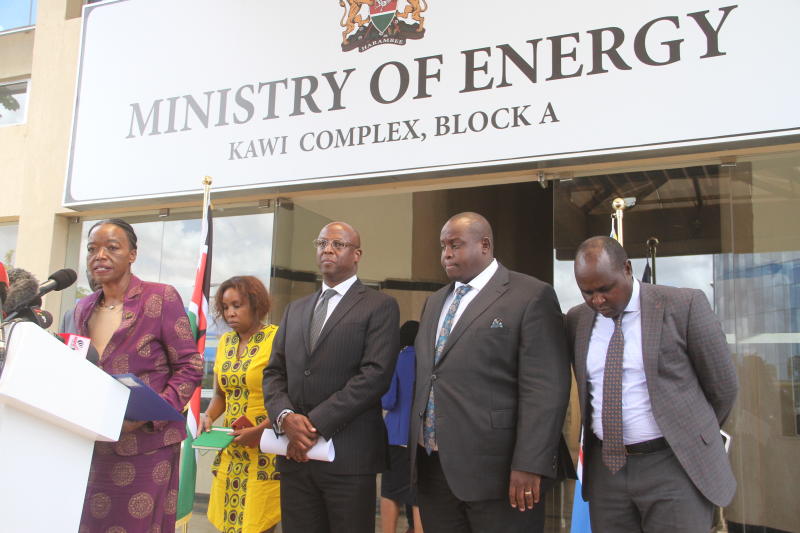×
The Standard e-Paper
Fearless, Trusted News

Acting Energy CS Monica Juma (left) addresses journalists at Kawi office in South C, Nairobi, flanked by Petroleum PS Andrew Kamau and Energy and Petroleum Regulatory Authority Director-General Daniel Kiptoo. [Edward Kiplimo, Standard]
Ten oil marketing companies could lose their licences as the government probes them for economic sabotage over claims of hoarding fuel and plunging the country into a fuel shortage.